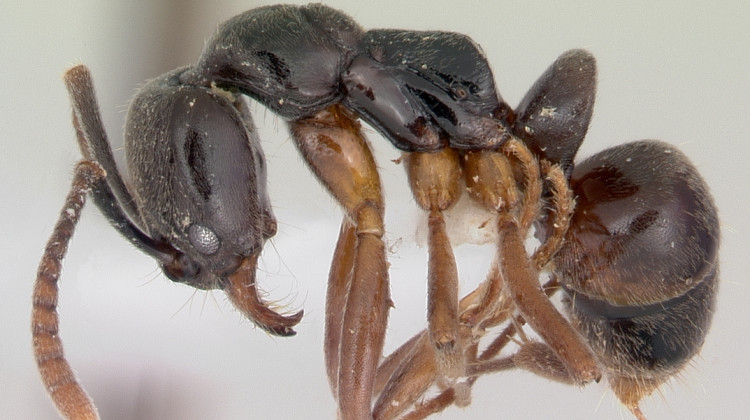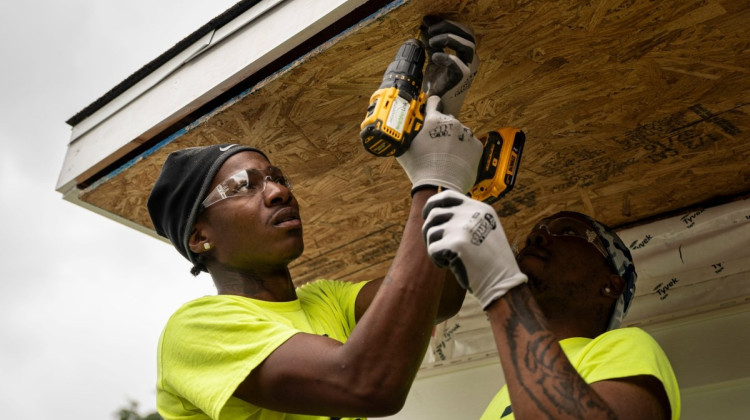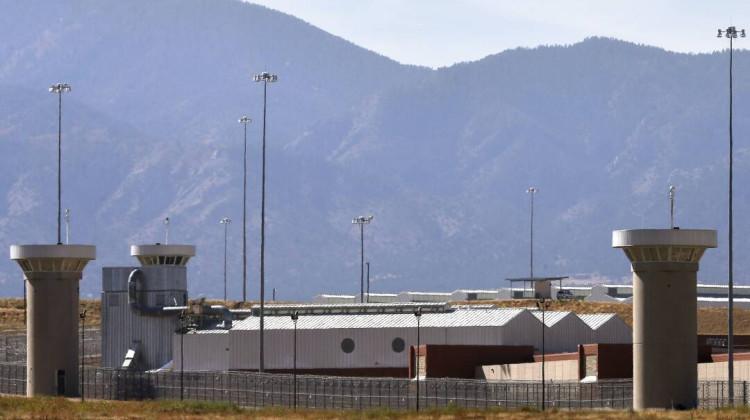
Profile view of ant Brachyponera chinensis specimen casent0104738.
April Nobile / © AntWeb.org / CC BY-SA 3.0INDIANAPOLIS (AP) — An invasive ant that can deliver a painful sting has been found in Indiana for the first time, a Purdue University insect expert says.
The Asian needle ant has traveled southern states like Florida and Georgia for several years. But it was recently discovered in the Evansville area — the furthest north the ant has ventured, said Timothy Gibb, a Purdue University entomologist.
The Asian needle ant is the first ant in Indiana that has a stinger and venom sac, Gibb said.
“Other ants will bite, but this is really new,” he told The Indianapolis Star.
Gibb said that while he hopes people don't go into a state of panic about the ant's arrival in Indiana, they should be aware of the dangers the insect can pose.
“It can be lethal,” he said. “In most cases, it’s just going to hurt like crazy.”
For most people, stings from the Asian needle ant will not be harmful, just painful. But people who are hyper-allergic to stings from insects like bees or wasps should be prepared with treatment such as an EpiPen, Gibb said.
The Asian needle ant can infest homes as well as woodland and outdoor areas, putting them “in close proximity with people,” he said.
Because the ant can infest homes, that will increase its ability to survive in Indiana's cold winter temperatures by protecting it from the extreme cold, Gibb said.
 DONATE
DONATE







 Support WFYI. We can't do it without you.
Support WFYI. We can't do it without you.